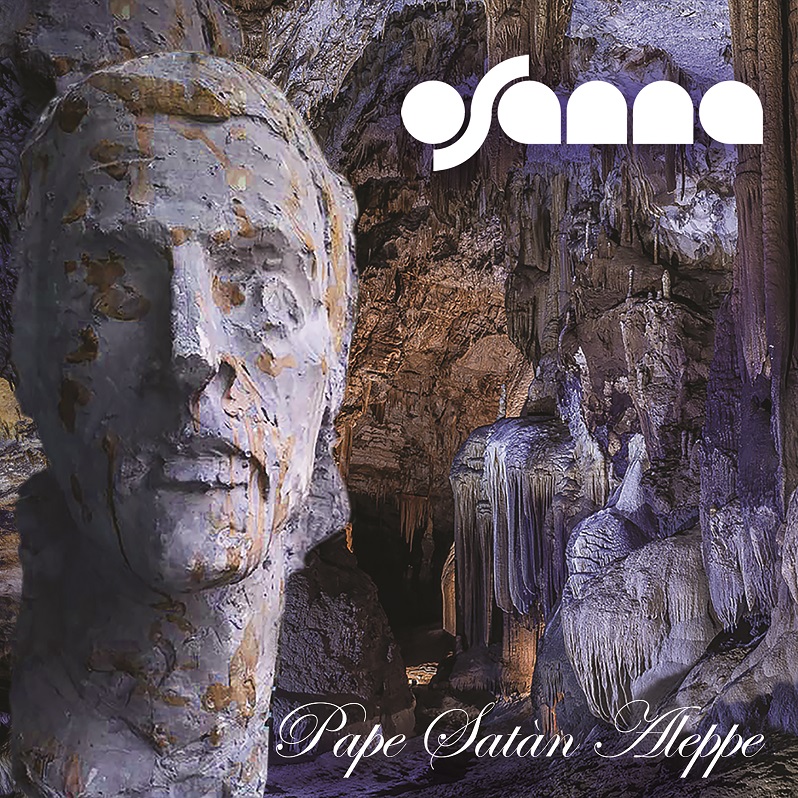
Finally comes the double vinyl "PAPE SATÀN ALEPPE", the new and highly anticipated musical release of the Osanna made with a beautiful packaging with unpublished photo inserts.
The double LP includes two unpublished studios, one more than the CD release released in November. The first is the song that gives the title to the whole work of Pope Satan Aleppe while the second is an Osanna version of a classic Neapolitan "A Polizia Ringrazia". The other tracks are live recorded during the concert last May at Club Il Giardino di Lugagnano (Vr).
The set list was chosen from the entire repertoire run that lasted over two hours
It is preferred to insert many excerpts from Palepolitana and some of the historical repertoire Osanna as L’Uomo, Taka Boom, Oro Caldo (Fuje ‘a chistu paese) plus some covers that are a tribute and a love quote to travel mates world progressive rock, such as Banco, PFM, Area, Nomadi, Equipe 84, Alan Sorrenti but especially to those who already have flown away like Francesco di Giacomo, Rodolfo Maltese, Demetrio Stratos and Augusto Daolio and friend always Pino Daniele. The same Pape Satan aleppe is a tribute to Umberto Eco.
The result was recorded in multitrack and managed a great job of post-production, editing and mixing by Alfonso La Verghetta that has really outdone in addressing this daunting task.
The choice of The Garden Club was made because it has become a traditional destination for Osanna, where they always have a great reception and has for years been a landmark of many fans of northern Italy.
The Track Pape Satan aleppe starts with a prologue on an ambient atmosphere in which Lino Vairetti reads the first six verses of the seventh canto of Dante's hell. Then he gets to the heart of the song with a very rock rhythm (the Led Zeppelin) and develops a very dynamic choral song and full of rhythmic changes between odd and even.
The text is all in Naples where he likened the circle of the damned and sinners of Dante, the urbanization of the metropolitan cities where sinners are the politicians and criminals.
E 'was used as a quote, a secular popular nursery rhyme (very popular in Naples)
There is also a quote from Goethe that during his stay in Naples, Napoli said he was "a paradise inhabited by devils" ....


